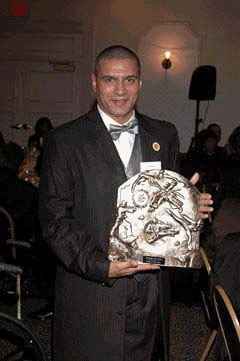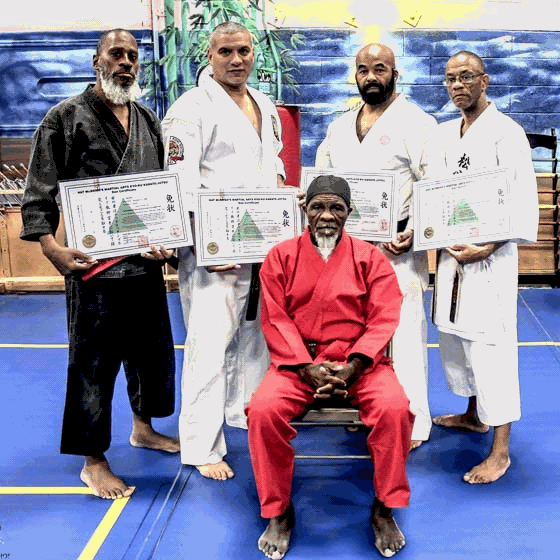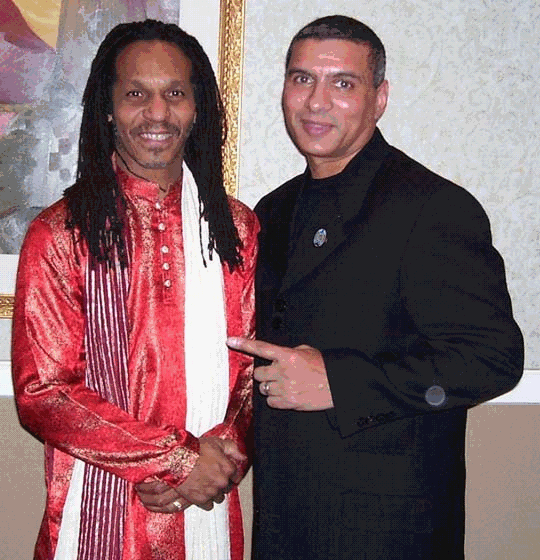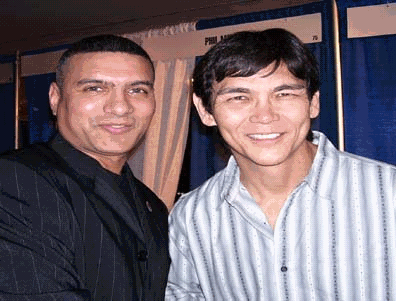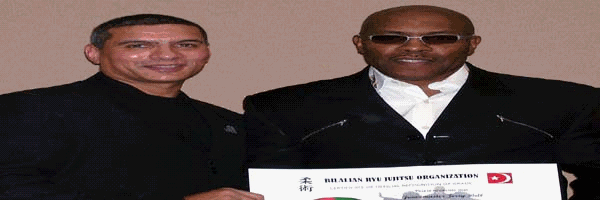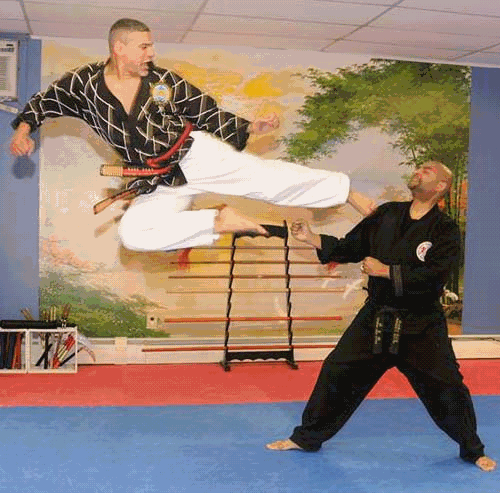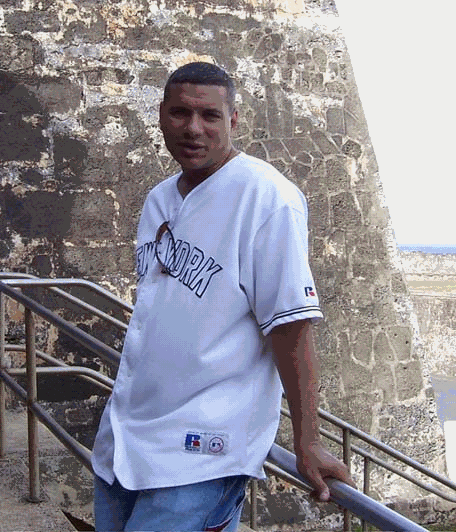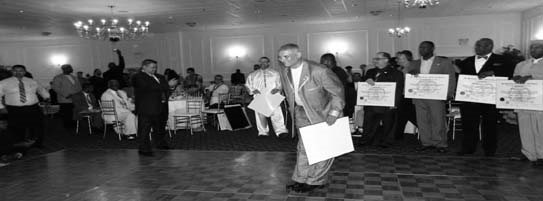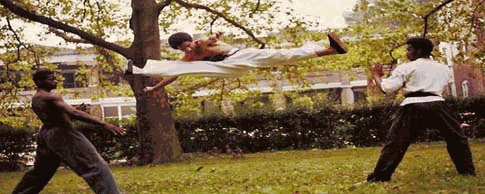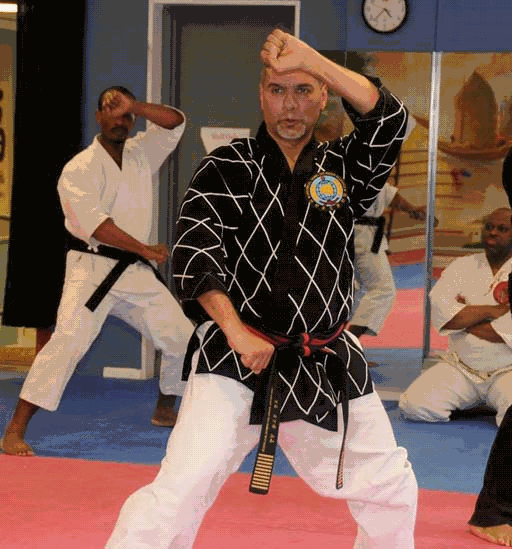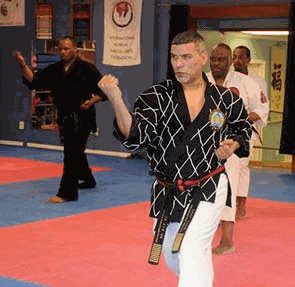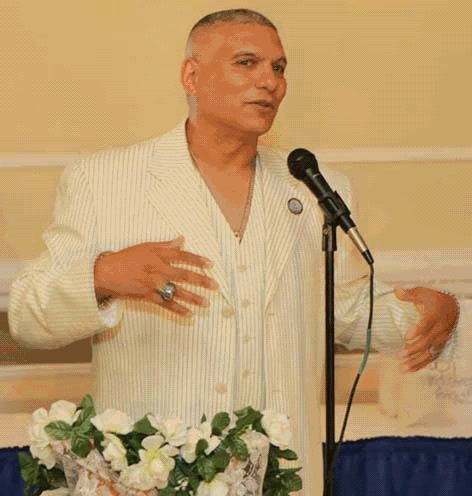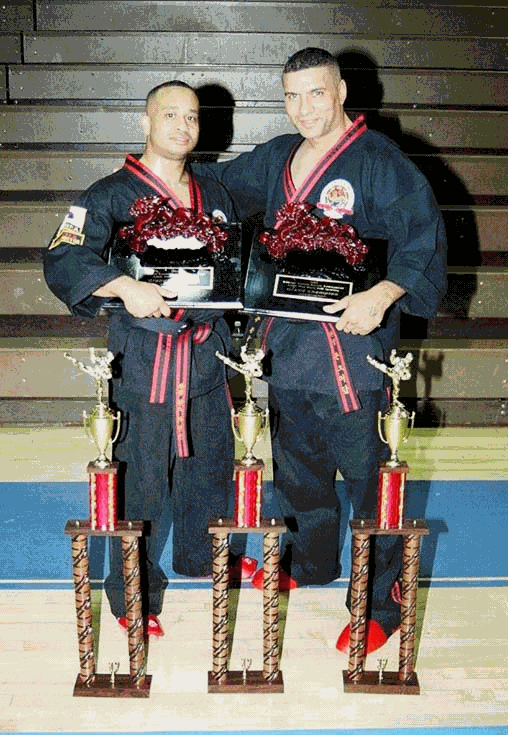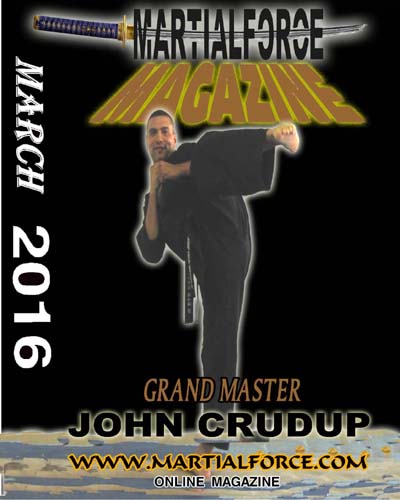MARTIALFORCE.COM
PRESENTS
AN INTERVIEW WITH
GRAND MASTER
JOHN CRUDUP
MARCH / 2016
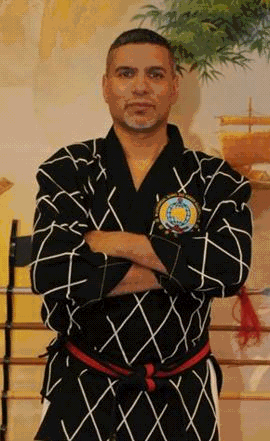
My name is Eddie Morales and welcomed to Martialforce.com Online Martial Arts Magazine. I am always in search of interesting stories and people in regards to interviews on Martialforce.com Online Magazine. My mission is and always will be, to give credit to all those martial artist that have dedicated themselves to the arts. Martial Artist that as a result of their dedication, have made changes in there lives and the lives of those around them. I want to introduce to you a person that has done exactly that. He began his Martial Arts journey back in a time when the training was tough and your choices were, quit or keep moving forward. Those that continued training would reap the rewards of their hard work by rising to a higher level of understanding in their chosen art. Those are the exceptional individuals that would eventually reach the rank and title of 1st degree black belt. A rank and title which meant something back then. The Martial Artist I am speaking of is, John Crudup. While doing my research on his background in Martial Arts I was impressed with my findings. As I researched for this interview I spoke to many people and the consensus was that Mr. Crudup was humble and dedicated to his art. Crudup is not only dedicated to his own life and training but has equally helped others past and present throughout his journey. John Crudup is a man of character, determination and is the personification of the Code of Honor. A code which at times seems to be lost in the Martial Arts world. We here at Martialforce.com are honored that he accepted this interview and hope you enjoy reading about his life.
Interview by Eddie Morales
Martialforce.com
Online Magazine
Martialforce.com: Where were you born and raised?
JOHN CRUDUP:
I was born and raised in Philadelphia, Pennsylvania.
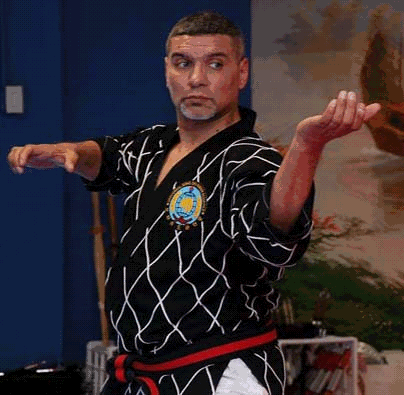
Martialforce.com: What is your current occupation?
JOHN CRUDUP:
I enjoyed a 26 year career in the United States Air Force. I retired as a Chief Master Sergeant in 2009 and currently work as a Wage & Hour Investigator for the United States Department of Labor.
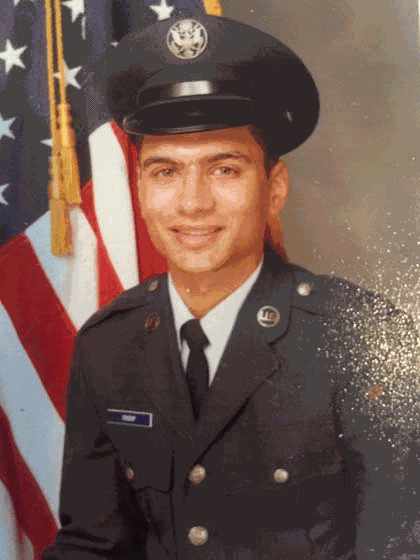
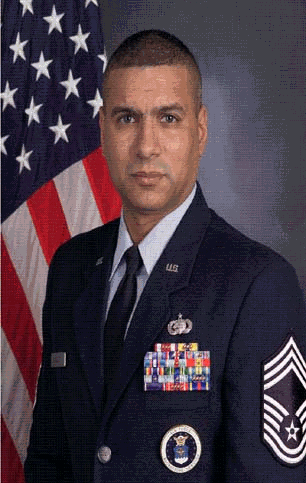
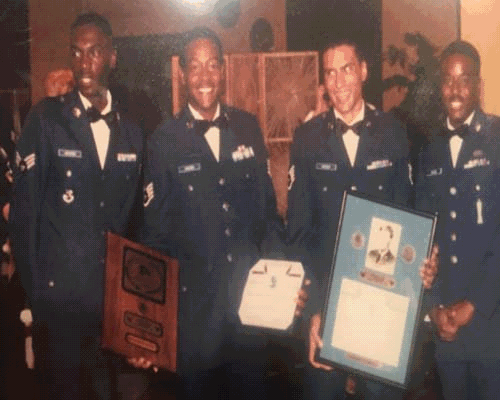
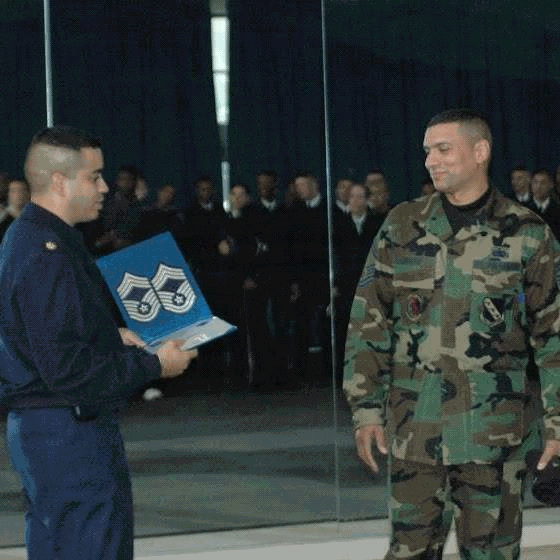
Martialforce.com: When and where did you begin your Martial Arts training and what was your motivation?
JOHN CRUDUP:
I formally began my training in 1971 under the direction of Sensei Ernest Paramore in the art of Shotokan Karate-Do. My motivation at that time was heavily influenced by Bruce Lee. Of course I watched the Green Hornet series as a child and was fascinated by the character Kato. But it wasn’t until 1971 when I became a paperboy for the Philadelphia Bulletin and our branch manager happened to be a karate instructor and offered free classes to all the paperboys as a way to defend ourselves in the event someone would try to take our money.
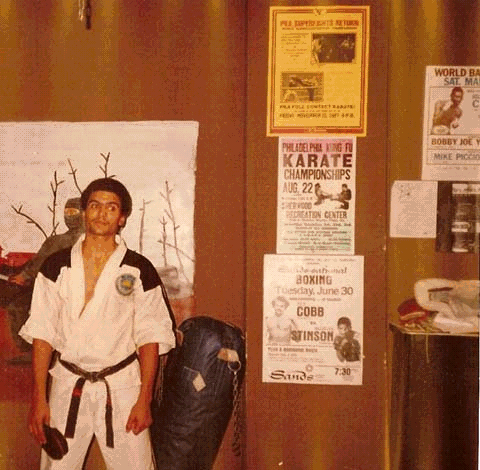
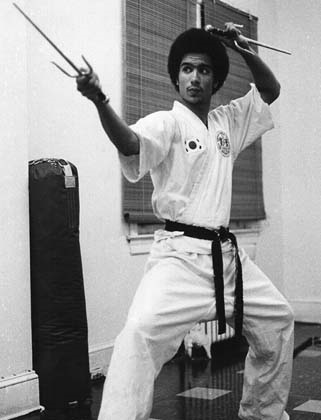
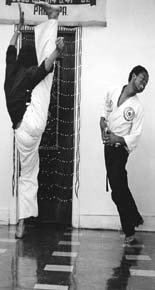
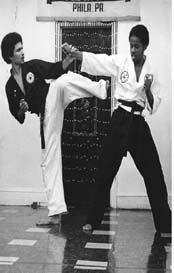
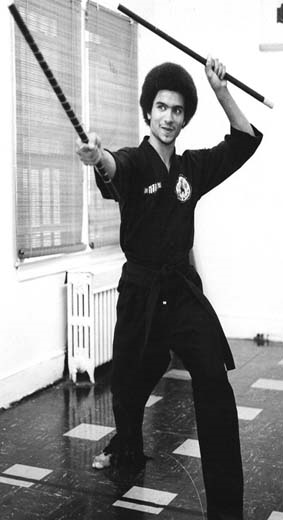
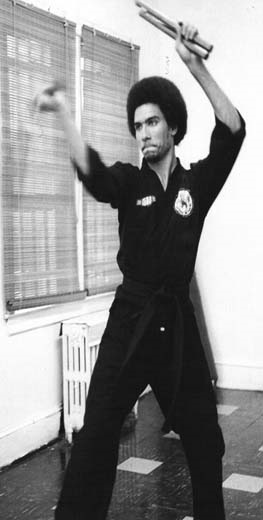
Martialforce.com: Did you compete in tournaments and if yes, are there any changes that you see from past vs present?
JOHN CRUDUP:
Yes, I competed in tournaments. When I began competing, we didn’t use any safety equipment. I believe Jhoon Rhee came out with the safety gear around 1975. I never really liked wearing the safety gear. The techniques seemed much more precise without the safety equipment. There are many techniques used in tournaments today that are counted as points that wouldn’t be counted back in the 1970s. I believe that the competitors today are probably more athletic than the competitors of the past. Competition today relies very heavily on speed, not necessarily great technique. Of course, I am generalizing. Every generation produces great competitors and the sport continues to evolve. Most people, like myself prefer the generation that they grew up in.
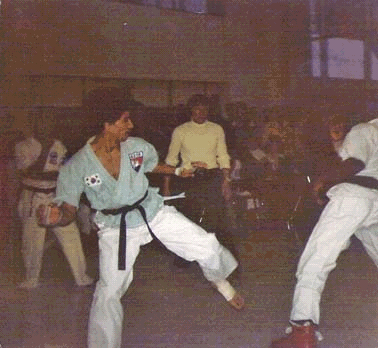
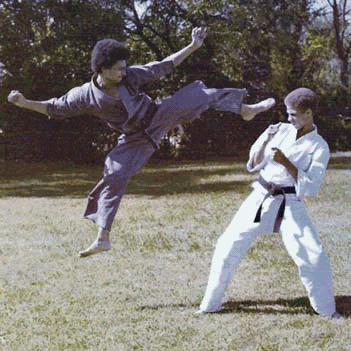
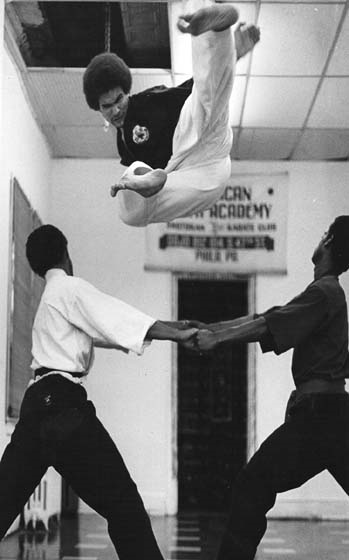
Martialforce.com: What are some of the most successful techniques, which you have used in tournament competition?
JOHN CRUDUP:
I was best known for my kicking ability. My favorite techniques was various combinations off the hook-round kick.
Martialforce.com: You were involved in the kickboxing arena. What was the motivation behind your involvement?
JOHN CRUDUP:
I began kickboxing in 1980 because I was seeking something a bit more challenging. I became somewhat complacent with point fighting. I got tired of dealing with constant rule changes, poor judging, and disqualifications for light facial contact. I wanted to test myself with something more challenging and earn a little extra money as well. The PKA was pretty popular at that time and the fights were televised on ESPN. My career was cut short when I enlisted in the Air Force in 1983.
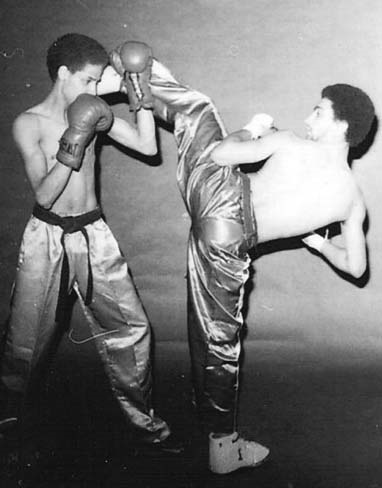
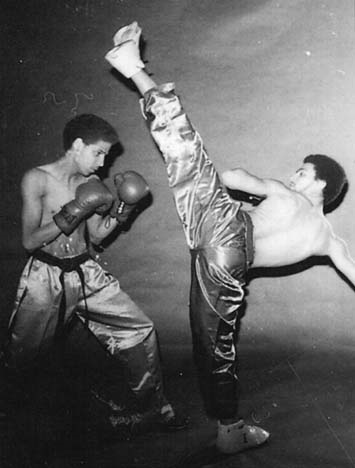
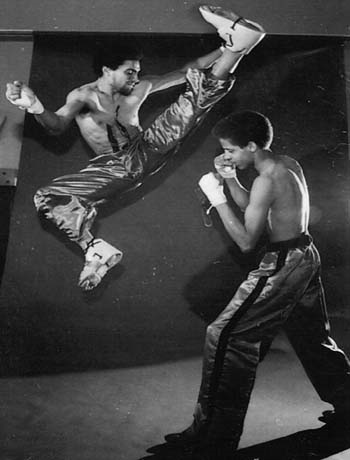
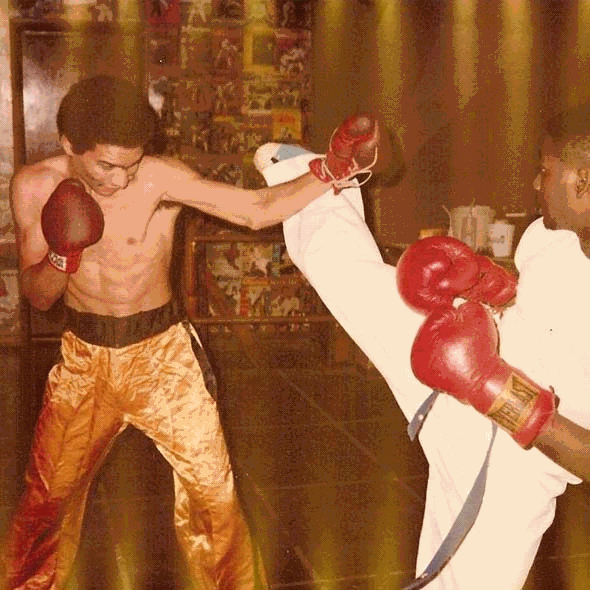
Martialforce.com: Who has been your greatest influence throughout your life in regards to Martial Arts and life in general?
JOHN CRUDUP:
Of course my earliest influence was Bruce Lee. He was a phenomenal martial artist and philosopher. He was years ahead of his time and could be considered the father of mixed martial arts. His philosophy was to “absorb what is useful, and discard what is not.” He was not confined or restricted by styles or systems. I still adhere to many of his philosophical precepts. There are many other martial artists that I have admired and been influenced by throughout the years. Some of them include Dr. Moses Powell, William Oliver and Byong Yu.
Martialforce.com: You mentioned three names as people that influenced you. Dr. Moses Powell, William Oliver and Byong Yu. Can you tell us about each individuals influence or what they had that retained your attention?
JOHN CRUDUP:
I will start with Master Byong Yong Yu first. My initial attraction to Byong Yu was the mere fact that a Korean frequently competed in open tournaments. In my early years of study, there was a mysticism that Asians were somehow inherently superior in martial arts than other races. Everyone wanted to train under a Japanese or Korean. There were many great Japanese and Korean instructors that came to the States in the 1960s and built successful programs and produced many champion competitors. The Japanese and Korean Masters performed demonstrations of kata, self-defense and breaking, but it was rare to see them actually compete. Byong Yu was a great fighter possessing tremendous heart and phenomenal jumping and kicking ability. He fought all the best fighters of his generation. Master Yu had very humble beginnings and was treated well when he arrived in the States. He was even homeless for a period of time. He turned tragedy to triumph and is an example that we can achieve anything if we are willing to work hard.
Master William Oliver was a triple threat. He was great in kata, weapons and kumite. His technique was flawless. I would rate Master Oliver pound for pound one of the best I’ve ever seen. The documentary “Fighting Black Kings” shows a young Oliver traveling to Japan to compete in Oyama’s Kyokushinkai tournament. Master Oliver’s performance demonstrated that a young man from the hood could compete on the world stage and standout among the best. Master Oliver was also a very humble, soft spoken man. He let his skills do the talking.
Lastly, what I remember most about Dr. Moses Powell was seeing him perform at Madison Square Garden at Aaron Banks’ Oriental World of Self-Defense in 1975. Dr. Powell moved unlike anyone I had seen before. He was not a small man, but he moved with a grace and smoothness that literally was like flowing water. Of course, who can forget the one finger rollout? His style of Sanuces Ryu Jiu-Jitsu was based on simplicity and survival. What I remember most about Dr. Powell was his saying, “I saw a guy with a machete and
